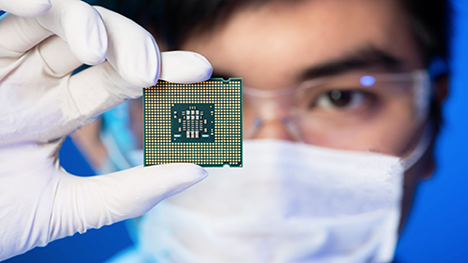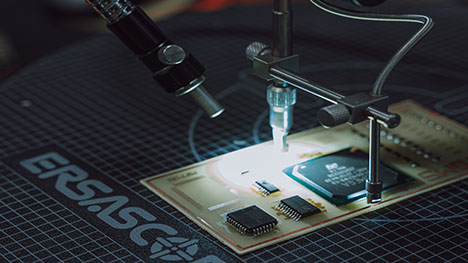Under the SANCTIONS of the United States, TSMC, Chip, Intel and other semiconductor manufacturers have cut off supplies to Russia
On February 28, news, as the conflict between Russia and Ukraine, relate to the United States and its Allies have announced sanctions against Russia, for defense, aerospace and Marine rely on sensitive items on the embargo, including semiconductors, computers, telecommunications, information security equipment, such as laser and sensor technology and products. According to the news of foreign media, including wafer foundry leader TSMC and other international semiconductor manufacturers have stopped supplying Russia.
The Washington Post report, citing unnamed sources, said TSMC, the world's largest foundry, has shipped products to Russia or to third parties known to have suspended supplies to Russia. In addition, TSMC is also sorting out the sanctions in order to fully comply with the provisions. TSMC also stressed in a statement that it is committed to complying with the government's new export control requirements. However, the report notes that the sanctions have not stopped the supply of consumer electronics. However, some related consumer chips and devices can also be used in related fields such as defense.
In addition to TSMC, another major foundry maker, GlobalFoundries, also said it had complied with the U.S. sanctions. Grofonde executives point out that the company has a system in place to review and stop any banned sales to Russia, a system that was previously used to vet China's Huawei. However, company officials also stressed that the size of the Russian buyer's revenue was not important to the company's operations.
For its part, Intel, the world's processor leader, said it was in compliance with all applicable export laws and sanctions, including new export controls focused on Russia. In response, analysts say Russia is vulnerable to export bans because it doesn't produce large amounts of consumer electronics or chips domestically. In particular, Russia does not produce high-end semiconductors needed for advanced computing, an area currently dominated by Taiwan, South Korea, the United States, Europe and Japan.
According to statistics from the World Semiconductor Trade Statistics (WSTS) organization, though, the impact of sanctions on Russia is likely to be significant. Russia, however, has not been a significant direct consumer of semiconductors, accounting for less than 0.1 percent of global purchases annually. Therefore, relatively speaking, the sanctions on semiconductor companies operating impact will be very limited.




